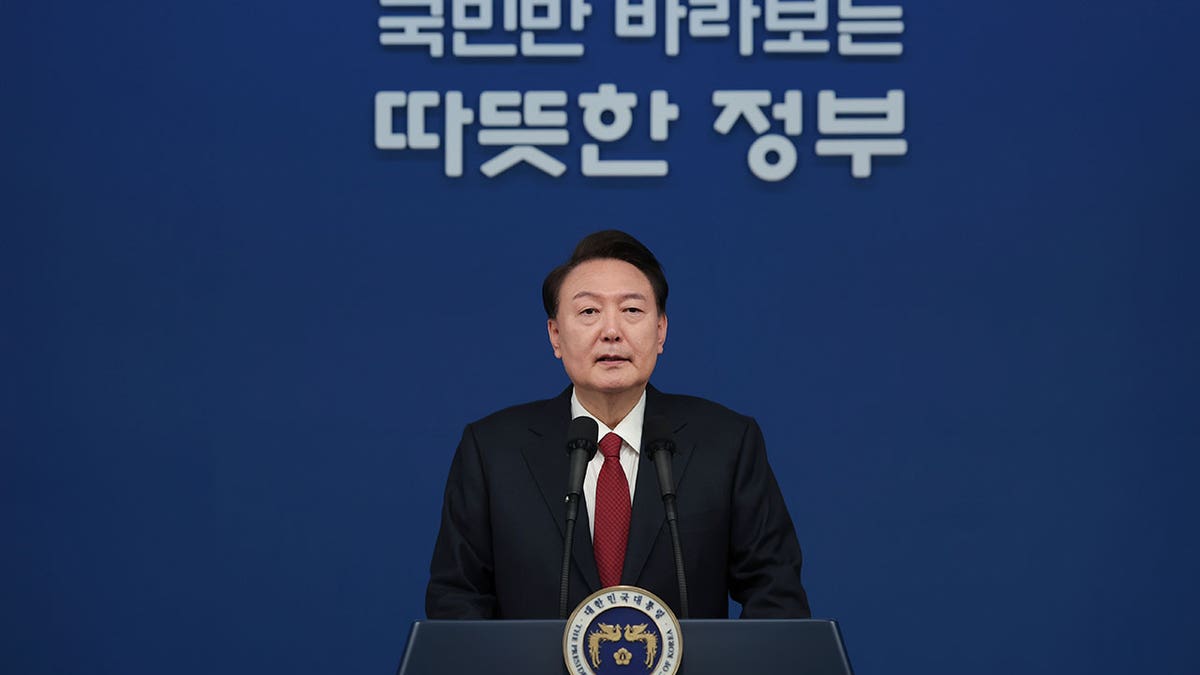- South Korean President Yoon Suk-yul has reiterated the country’s stance against its acquisition of a nuclear deterrent in response to North Korea’s threats.
- Yoon acknowledged South Korea’s ability to rapidly acquire nuclear weapons technology but considered it unrealistic because of the potential economic impact.
- The conservative Yun, who will be elected in 2022, has consistently sought assurances from the United States regarding the rapid deployment of nuclear capabilities.
of South Korea President Yoon Seok-yul reiterated that the country will not seek its own nuclear deterrent in the face of threats from a nuclear-armed North Korea, as he made further efforts to step up nuclear deterrence strategies with ally the United States. Determined?
In a pre-recorded interview with KBS television that aired Wednesday night, Yun insisted that South Korea clearly has the technology to quickly denuclearize if it ever decides to do so. Can gain weapons ability. But taking this step is not a realistic option as it would destroy an economy dependent on trade.
“If we progress. Nuclear weaponsWe will face various economic sanctions like North Korea does now, and our economy will suffer a severe blow,” Yun said, stressing Seoul’s commitment to the nuclear non-proliferation treaty.
Yun, a conservative who takes office in 2022, has made similar comments before when he called for strong assurances from Washington that it would defend its ally in the event of a North Korean nuclear attack. will use its nuclear capabilities rapidly and decisively for defense.

South Korean President Yoon Suk-yol speaks during his New Year’s speech at the presidential office on January 1, 2024 in Seoul, South Korea. Yeol reiterated that the country would not seek its own nuclear arsenal given the dangers posed by nuclear weapons. North Korea. (AP, South Korean Presidential Office via file)
Tensions on the Korean Peninsula are at their highest in years, as North Korean leader Kim Jong-un continues to ramp up his country’s weapons tests while issuing provocative threats of nuclear conflict with the South.
South Korea has responded by ramping up its joint military exercises with the United States and Japan, and those countries are also upgrading their nuclear deterrence strategies built around strategic U.S. military assets.
In a fiery speech to North Korea’s rubber-stamp parliament last month, Kim announced that the North was abandoning its long-held goal of reconciliation with the war-torn South and ordered a rewrite of the North’s constitution so that the South can be appreciated the most. Foreign enemies
Some experts say Kim is trying to increase pressure in South Korea and the United States in an election year. There are fears of direct provocations in border areas, including the disputed West Sea boundary between the Koreans, which has been the site of bloody naval skirmishes over the years.
In his interview with KBS, Yoon called the Kim regime “irrational forces” that are putting more pressure on North Korea. A broken economy By aggressively expanding the country’s stockpile of nuclear weapons and missiles.
“We need to keep this in mind as we prepare to counter their security threats or provocations, not just for actions based on rational decisions but actions based on irrational consequences,” Yoon said. Also preparing.”
Yun said the South is ready to provide economic support if the North shows a genuine willingness to end its nuclear weapons and missile programs. He said he had no intention of pursuing a summit with Kim “if it’s just for show,” adding that previous meetings between the Korean leaders had done little to curb North Korea’s nuclear ambitions. did not
A top-down approach is not ideal, Yoon said. “We need a bottom-up structure where there is discussion and dialogue between working-level officials to set the agenda and produce (substantial) outcomes, and then there should be a summit.”